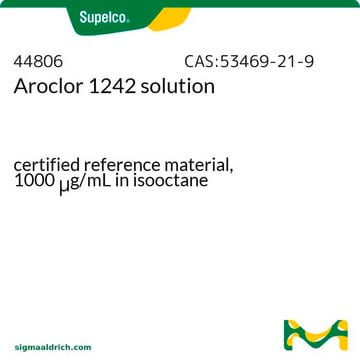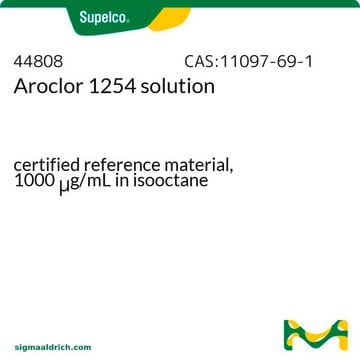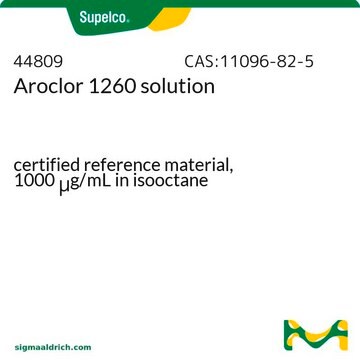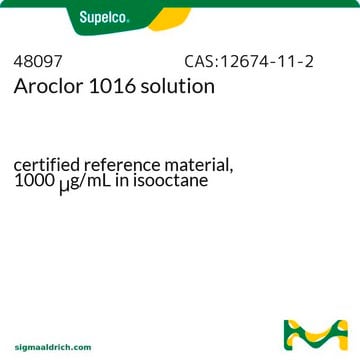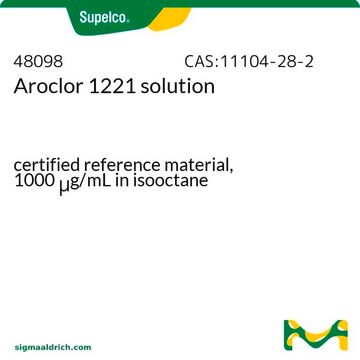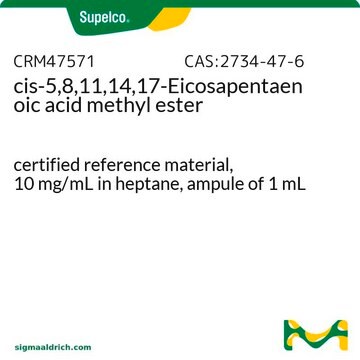44807
Aroclor 1248 solution
certified reference material, 1000 μg/mL in isooctane
About This Item
Productos recomendados
grade
certified reference material
TraceCERT®
agency
EPA 8082
product line
TraceCERT®
CofA
current certificate can be downloaded
feature
standard type calibration
packaging
ampule of 1 mL
concentration
1000 μg/mL in isooctane
technique(s)
HPLC: suitable
gas chromatography (GC): suitable
application(s)
environmental
format
single component solution
storage temp.
2-30°C
InChI
1S/C12H6Cl4/c13-9-1-7(2-10(14)5-9)8-3-11(15)6-12(16)4-8/h1-6H
InChI key
UTMWFJSRHLYRPY-UHFFFAOYSA-N
¿Está buscando productos similares? Visita Guía de comparación de productos
Application
Other Notes
Legal Information
signalword
Danger
Hazard Classifications
Aquatic Acute 1 - Aquatic Chronic 1 - Asp. Tox. 1 - Flam. Liq. 2 - Skin Irrit. 2 - STOT RE 2 - STOT SE 3
target_organs
Central nervous system
Storage Class
3 - Flammable liquids
wgk_germany
WGK 2
flash_point_f
10.4 °F - closed cup
flash_point_c
-12 °C - closed cup
Elija entre una de las versiones más recientes:
¿Ya tiene este producto?
Encuentre la documentación para los productos que ha comprado recientemente en la Biblioteca de documentos.
Nuestro equipo de científicos tiene experiencia en todas las áreas de investigación: Ciencias de la vida, Ciencia de los materiales, Síntesis química, Cromatografía, Analítica y muchas otras.
Póngase en contacto con el Servicio técnico